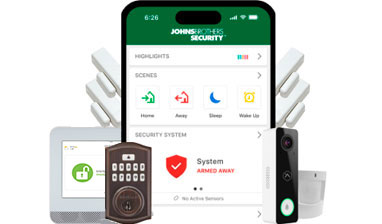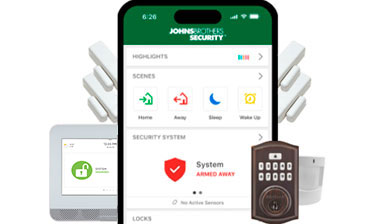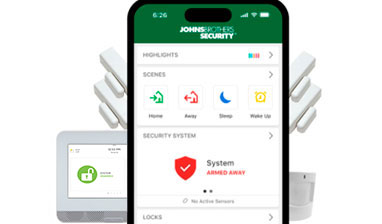
Keeping in touch with most people in your life is made easy by social media. We can share memories, recent events, and significant announcements. The internet has also made our lives more transparent. We can find out a lot about other people using social media. Unfortunately, these services also offer a look into our lives by people that abuse the system. Criminals use the information published online when planning to plot their following targets. Broadcasting the wrong information online at the wrong time can make your home and valuables vulnerable.
Here are some common errors you can avoid to ensure your safety and your home security is not at risk due to actions online.
Many people will share their new location on social media platforms the moment they reach their destination. It is also possible for you to be sharing this information without your knowledge if your location settings are turned on in various social media apps. If someone is exploring social media and sees that you have checked into a place that isn’t your home, they might consider this an invitation to break into your home. Check-in at a public venue, business, restaurant, etc., is visible for all who visit or follow that business’s social accounts. Whenever possible, avoid these check-ins, so your wireless home security system doesn’t have to alert you of a break-in when you are out and about!
Planning a vacation to a favorite destination, and you can’t wait to share the info with the world? Everyone has a tendency to share fun news but announcing that you just booked an all-inclusive cruise during spring break is risky. Also, if you tag the travel agent that helped you book your next big adventure, all of the people your agent is linked to online will also see your news. This is too much notice for the criminals who lurk online. When a thief is getting a play-by-play of your upcoming travel plans, they will have the chance to plan the perfect invasion into your privacy and home. The best advice is to post the details about your trip after returning. Your friends will still be able to enjoy seeing your adventure, and you can avoid the risk of jeopardizing your security.
The temptation to post pictures and videos of your new car or the recent purchase of your flat-screen TV is natural. This isn’t inherently a bad thing! Just keep in mind that when you do this then you could be potentially inviting criminals to a new target. Have you ever thought about how many people might see the picture of your brand new car that you allowed the dealership to also share on social media? If you can’t resist the urge to share this news, make sure your post is not public or shared on a public account like your dealership’s or via any business. The public setting not only means that everyone on the social site will see your post, but it also means anyone online can see it as well. In addition, if your settings allow “Friends of Friends” to see your updates, you do not know who all of your friends are connected with, so it might be good to avoid this setting too.
The best advice is to keep a good check on exactly where your information is going. Criminals spend a lot of time online searching for opportunities and hoping to find something of value to prey on. Don’t risk an in-home invasion because of too much info sharing.
Many people take quizzes online every day that range from “Who are your favorite bands?” to “Which cartoon character fits your personality?” and the list goes on. Most of these are harmless fun. However, some quizzes and questionnaires sneak in specific questions that seek to gather the information that can help scammers get through your online security protections. Some might even secretly opt you in to other apps or gain access to your login credentials. Unless you know the company offering the online quiz is a trusted source, you want to avoid the risk. You can be especially vulnerable to endangering the security of your home if you use the same passwords to disarm your smart security system. Many people don’t take the time to have different passwords because it can be too difficult to remember them. The more specific information you share online about you, the more opportunities you give to a thief to infiltrate your domain.
If you want to see just how vulnerable you are online, “reverse stalk” yourself, meaning look at your profile as if you are a stranger and see how public it is. Modify anything you feel uncomfortable with immediately.
According to AdWeek, an eye-opening 78 percent of burglars have said that social media security on various platforms such as Twitter, Facebook, and Foursquare are being used to select properties. So, it is wise for homeowners to take a good look at their social media profiles, especially before going on vacation. Assume anything you put on the internet can go public. Your home and family will be better protected if you avoid oversharing information with others.
For more effective security tips on how to keep your home secure, check our blog weekly for the latest best practices and helpful tips. Call us today at 800-242-9760

Our most complete package features protection, automation, and video delivered to your smartphone.

Our most popular smart security package features more than protection – it’s your pathway to home automation.

The essential security package features affordable protection with a wireless connection.
Get a free consultation and the latest smart home tips & tricks